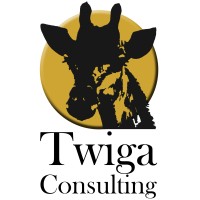Why CCMA Compliance Matters for Every Employer
Labour law in South Africa is designed to protect both employees and employers, ensuring fairness, transparency, and accountability in the workplace. The Commission for Conciliation, Mediation and Arbitration (CCMA) plays a pivotal role in resolving workplace disputes, ranging from unfair dismissals to wage disputes and discrimination claims. However, many employers underestimate the importance of adhering to proper procedures, which can result in costly and time-consuming disputes.
At Twiga Consulting, we specialise in helping businesses navigate these challenges by providing guidance on compliance, disciplinary processes, and CCMA procedures.
Understanding Labour Law in South Africa
South African labour law is primarily governed by the Labour Relations Act (LRA), which ensures fair treatment of employees and outlines the procedures for resolving disputes. Key principles include:
- Fair dismissal: Employers must have a valid reason for terminating employment and follow a fair process.
- Unfair labour practices: Employees are protected against unfair treatment, discrimination, and victimisation.
- Employee rights: Workers are entitled to representation, written notice, and the right to respond to allegations.
- Dispute resolution: The LRA encourages resolution at a workplace level before escalating to the CCMA.
Failing to comply with these principles can lead to findings of unfair dismissal, penalties, and reputational damage.
How the CCMA Works
The CCMA offers a structured framework to resolve disputes efficiently and impartially. Here’s an overview:
- Referral: Employees who believe they have been unfairly treated can refer their case to the CCMA.
- Conciliation: A CCMA commissioner attempts to resolve the dispute through conciliation. Most disputes are settled at this stage.
- Arbitration: If conciliation fails, the matter may proceed to arbitration, where the commissioner makes a binding decision.
- Enforcement: The CCMA’s rulings are legally enforceable, ensuring that employees receive remedies, or employers comply with rulings.
In 2024, over 45,000 disputes were referred to the CCMA, with unfair dismissal and wage disputes among the most common. Procedural errors by employers—like failing to give proper notice or conduct fair hearings—are a leading cause of adverse rulings.
Most Common CCMA Cases in 2024
According to the CCMA’s Annual Report for the 2023/24 financial year, the commission received approximately 193,000 case referrals. While the report doesn’t specify the exact breakdown of case types, historical data indicates that the most prevalent cases typically include:
- Unfair Dismissals: Allegations of wrongful termination, whether due to misconduct, incapacity (poor performance or ill-health), or operational requirements.
- Unfair Labour Practices: Disputes related to promotions, demotions, training, or other employment benefits.
- Severance Pay Disputes: Issues arising from retrenchments or dismissals for operational reasons.
- Discrimination Claims: Allegations of unfair treatment based on race, gender, disability, or other protected characteristics.
Understanding these common case types can help employers proactively address potential issues and ensure compliance with labour laws.
Twiga Consulting provides expert guidance at every stage of the labour law and CCMA process:
- Policy and Procedure Development: Ensuring your company policies comply with South African labour law.
- Disciplinary Support: Assisting with fair investigations, hearings, and documentation.
- CCMA Preparation: Preparing your business for conciliation or arbitration, ensuring evidence and arguments are properly presented.
- Post-CCMA Support: Implementing decisions and advising on preventive measures to avoid future disputes.
Step-by-Step: The CCMA Process from Start to Finish
- Internal Resolution: Encourage employees to address disputes internally. Document all communications and attempts at resolution.
- Referral to CCMA: If unresolved, the employee refers the dispute to the CCMA. This must be done within 30 days of the incident in most cases.
- Conciliation: A CCMA commissioner facilitates a discussion between the parties to reach an amicable resolution.
- Arbitration (if necessary): If conciliation fails, arbitration proceeds, where the commissioner reviews evidence and makes a binding decision.
- Decision Implementation: Both parties must comply with the ruling. Non-compliance can result in legal consequences.
- Ongoing Compliance: Post-resolution, Twiga Consulting can help refine workplace policies and procedures to prevent recurrence.
Why Proper Procedure Matters
Following labour law and CCMA procedures is not just about legal compliance, it’s about fairness, transparency, and maintaining trust in the workplace. Proper procedures:
- Protect your business from costly disputes
- Promote a culture of accountability
- Ensure employees feel heard and valued
- Minimise reputational risk
Labour disputes can be complex, but you don’t have to navigate them alone. Twiga Consulting provides expert guidance to ensure your company complies with labour law, protects its interests, and resolves disputes efficiently. From internal policies to CCMA representation, we stand by your side every step of the way.
Avoid unnecessary risk and ensure your workplace is legally compliant. Contact Twiga Consulting today for professional HR and labour law support tailored to your business.
The insights shared in this article are based on recent industry trends and analyses from leading sources, Commission for Conciliation, Mediation and Arbitration (CCMA) Annual Report 2023/24: CCMA Annual Report 2023/24


Very insightful! Good read.